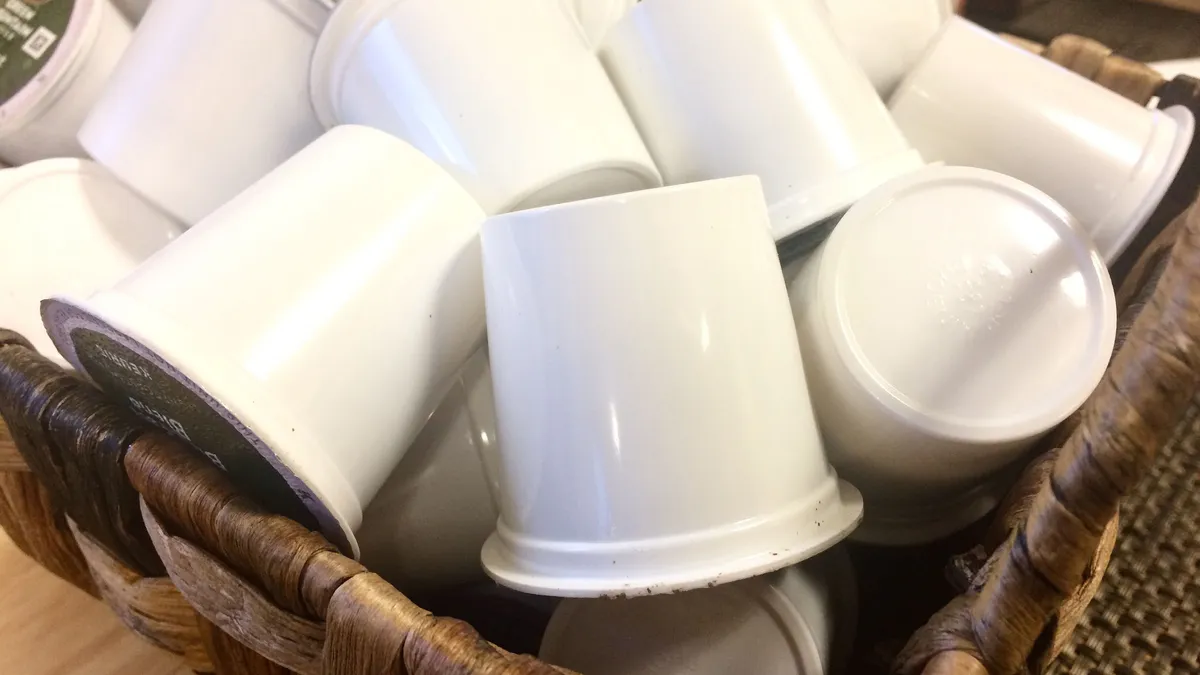Dive Brief:
- Keurig Dr Pepper has laid out a series of sustainability goals including using 100% recyclable or compostable packaging and sending no waste to landfills by 2025, according to a press release. K-cups, the company said, will be 100% recyclable by 2020.
- Additionally, the beverage company pledged to use 30% post-consumer recycled packaging across it products and source 100% renewable energy by 2025.
- The company has also committed to developing science-based carbon emissions targets in coordination with the Science-Based Target initiative (SBTi), meaning it will set emissions goals "in line with the level of decarbonization required to keep global temperature increase below 2 degrees Celsius compared to pre-industrial temperatures," as described by the initiative.
Dive Insight:
Though the company has an immense portfolio of beverage brands, Keurig Dr Pepper has a lot of ground to make up when it comes to public perception and sustainability largely due to one particular brand. Keurig K-cups specifically, and single-use coffee pods more generally, are widely recognized as unsustainable by consumers and Keurig's adjustment in the type of plastic used to make them more recyclable in 2016 fell somewhat flat as competitors found biodegradable alternatives. Despite that reputation, single-pod sales have been increasing for the company for the last several quarters. Executives may see an upside in re-converting consumers that have abandoned K-cups for other options.
These diverse sustainability initiatives are an aggressive start to changing that narrative.
Heavy hitters in sustainability like the SBTi and the Ellen MacArthur Foundation, a leading organization in the movement toward circular economies, are strong endorsements for the seriousness of these commitments.
Keurig Dr Pepper has signed the foundation's New Plastic Economy Global Commitment, which is a commitment to eliminate unnecessary plastic, ensure all remaining plastics are reusable, recyclable or compostable and keep existing plastic in use and out of the environment.
Beyond plastic in packaging, this list of new efforts addresses waste, water and carbon emissions — each of which will likely require some shifts in the supply chains of Keurig Dr Pepper's brands. The company will soon release its first-ever sustainability report, according to its website.
It remains to be seen how drastic the company's work will need to be to meet the SBTi standards for carbon reduction. Keurig Dr Pepper has committed to the SBTi, meaning it submitted a letter expressing its intention to lower carbon emissions to SBTi's standards.
The company made this commitment in May 2019 and now has 24 months to develop, submit for approval and publicize firm targets for carbon emission reduction. So far, 46 food and beverage processing companies have committed to setting science-based targets and 22, including PepsiCo and Nestlé, have approved targets in place.














